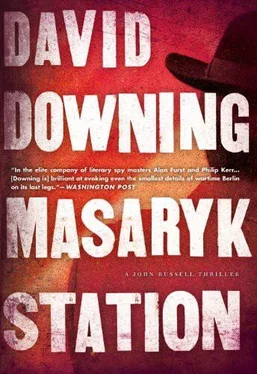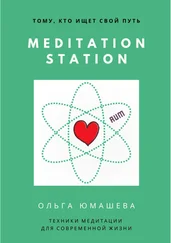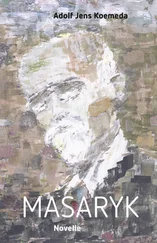David Downing - Masaryk Station
Здесь есть возможность читать онлайн «David Downing - Masaryk Station» весь текст электронной книги совершенно бесплатно (целиком полную версию без сокращений). В некоторых случаях можно слушать аудио, скачать через торрент в формате fb2 и присутствует краткое содержание. Год выпуска: 2013, ISBN: 2013, Издательство: Soho Press, Жанр: Шпионский детектив, на английском языке. Описание произведения, (предисловие) а так же отзывы посетителей доступны на портале библиотеки ЛибКат.
- Название:Masaryk Station
- Автор:
- Издательство:Soho Press
- Жанр:
- Год:2013
- ISBN:9781616952228
- Рейтинг книги:4 / 5. Голосов: 1
-
Избранное:Добавить в избранное
- Отзывы:
-
Ваша оценка:
- 80
- 1
- 2
- 3
- 4
- 5
Masaryk Station: краткое содержание, описание и аннотация
Предлагаем к чтению аннотацию, описание, краткое содержание или предисловие (зависит от того, что написал сам автор книги «Masaryk Station»). Если вы не нашли необходимую информацию о книге — напишите в комментариях, мы постараемся отыскать её.
Masaryk Station — читать онлайн бесплатно полную книгу (весь текст) целиком
Ниже представлен текст книги, разбитый по страницам. Система сохранения места последней прочитанной страницы, позволяет с удобством читать онлайн бесплатно книгу «Masaryk Station», без необходимости каждый раз заново искать на чём Вы остановились. Поставьте закладку, и сможете в любой момент перейти на страницу, на которой закончили чтение.
Интервал:
Закладка:
Effi got to her feet, took one look at the dead Russian, and went through to the bedroom to comfort Rosa.
‘What are you going to do with him?’ Strohm asked Russell after a few moments’ silence. ‘Him and his partner.’
Russell put down the pistol and ran a hand through his hair. ‘While you were doing your K-5 impression I was wondering exactly that, and I did come up with one idea. I have no right to ask you this-you’ve done more than enough already-but …’
‘How can I help?’
‘Well, I need to dump them somewhere in their car. It has to look like an accident, or we’ll be getting more visits like this one. If you bring your car along, you can give me a lift back.’
‘Okay, but won’t the bullets be a giveaway?’
‘They’ll have to come out.’
Strohm went to the window to look at the street. ‘When do you think we should leave?’
‘The sooner the better. The place I have in mind is up in the British sector, and they don’t do night patrols any more. But let me tell Effi what’s we’re doing.’
‘Give me the keys and I’ll bring the Russians’ car around,’ Strohm offered.
In the other room Effi was sat on the bed, Rosa’s head on her shoulder.
‘It’s all over, sweetheart,’ Russell said, leaning over to kiss the child on the forehead. ‘He can’t hurt you and Effi now.’
‘Is he dead?’ she whispered.
‘He is. It was him or us, I’m afraid.’
‘I’m glad,’ Rosa said.
‘What about the body?’ Effi asked.
‘Gerhard and I will take it away. Are you okay?’
‘Yes, I suppose so. Be careful.’
‘Aren’t I always?’
One thing about their building, as Russell and Effi knew from previous complaints, was that they were always the last ones to bed. The two men carried the corpse down through the silent stairwell, and once Strohm had signalled the all-clear, Russell dragged it out to the street. Fitting another body into the boot wasn’t easy, but between them they managed somehow. There was always the chance that someone one had seen their struggle from a window, but the street lighting was poor, and Berliners weren’t as conscientious about reporting wrong-doing as they had been at one time. Either they’d seen too much of it, or their trust in authority was at a very low ebb. Both, most likely.
‘Where are we going?’ Strohm asked.
Russell told him.
‘Okay. I’ll get my car and follow you.’
‘If I didn’t know better,’ Russell said wryly, ‘I’d say you were almost enjoying yourself.’
‘I might be now,’ Strohm admitted, ‘but I wouldn’t want to go through those ten minutes again.’ As he walked to the Party car, he asked himself why he had actually risked his life. Several reasons came to mind-too much alcohol, his fury with the Russians, loyalty to a friend. But what mattered now was that he’d got away with it.
Strohm started up the Horch, and drove it around the corner into Carmer Strasse, where Russell was just walking out to the Maybach with bottle in hand.
They started off, and within a few minutes were heading northwest up a mostly empty Berliner Strasse. Occasionally another car would pass in the other direction, but they saw no British patrols. The Western Allies would all be keen save petrol, Strohm thought, now that they couldn’t bring anymore in.
Up ahead, Russell was looking for flaws in his hastily conceived plan. If a proper investigation was held-and he hoped the British authorities would make that as difficult as possible for the Soviets-then it had look like the two GRU men had been on their way home with the film when one of two things had happened-either Beria’s men had got to them, or they’d had a terrible accident. And since he couldn’t think of any way to fake the former, it had to be the latter. Complete with flames. Two burnt bodies and one burnt film.
The boys in the boot had even supplied the accelerant-the spare of can of petrol in the back was probably standard issue for GRU murder squads.
It took twenty minutes to reach the bridge across the choked canal. The long gap in the parapet, which he’d noticed several months earlier, was, like most of Berlin, awaiting repair. Even the string of warning flags had blown away. It was, as Russell had thought at the time, an accident waiting to happen.
He stopped and got out. There were lights in the distance in both directions, but the immediate area was lit by the moon, revealing an industrial wasteland of hulk-filled docks, burnt-out factories, and sidings strewn with splintered wagons.
Strohm joined him, and they pulled the corpses out on to the bridge. ‘Now for the difficult bit,’ Russell murmured, getting down on his haunches and taking out his pocket knife. In the First War they’d used to say that dead men didn’t bleed, but digging out the bullets was a messy business, and the smell of innards did evoke the trenches with a vengeance. When he was done, he walked back twenty metres and dropped the three bullets in the stagnant water below.
There was still no sign of other traffic. After lifting the Russians into the front seats, and jamming their Tokarev pistols into their pockets, Russell doused them and the film with petrol, then fashioned a Molotov cocktail using the bottle and handkerchief he’d brought along for that purpose.
There was no need to push the car-just removing the handbrake and turning the wheel would suffice. In the event, the car gathered speed faster than Russell expected, and he barely had time to light the cocktail and thrust it through the open window. The blaze was instant, the two bodies silhouetted in flame as the car toppled over the edge and out of sight. A split-second later it hit the concrete towpath with a crash that was probably heard in Karlshorst, and a curtain of flame soared upwards, like an all-too-effective beacon.
‘Let’s get out of here,’ Russell said, unnecessarily.
They spent several minutes in fear of approaching lights, but once Strohm had pulled them off the main highway and into the Westend back streets both men felt a lot safer.
‘Thank you,’ Russell said. The two words seemed hardly enough, but he couldn’t remember meaning them more.
‘You’re welcome,’ Strohm said lightly.
‘What chance in a thousand brought you around tonight?’ Russell asked him.
Strohm laughed. ‘Believe it not, I wanted to talk about the Yugoslavs.’
‘What about them?’
‘Haven’t you heard? The Soviets are throwing them out of the Cominform for having minds of their own. It’s over,’ he added after a moment.
‘What is?’
Strohm ignored that. ‘What made you leave the Party?’ he asked.
So that was it, Russell thought. ‘You know I can’t remember any particular thing-it was a lot of things, all adding up. One day I just knew that I wanted out. That the reasons I’d had for joining no longer made any sense to me.’
Strohm thought about that for a minute or so. ‘They say Brecht’s coming back,’ he said eventually, as if the poet’s blessing might make all the difference.
‘ “Hatred, even of meanness, contorts the features”,’ Russell quoted.
‘Always?’
‘I don’t know. I do know that socialism’s dead in the water, for our lifetime at least. The Yanks and Stalin-they’ve got each other now, perfect scapegoats for anything that goes wrong in their own empires. The Yanks prattle on about freedom and free enterprise, the Soviets about welfare and full employment, and neither will admit that they lack what the other has. They’ll both spend a fortune on weapons and come down like a ton of bricks on anyone who makes trouble on their own patch.’ Russell grunted. ‘You know what happened? The Nazis made everyone look good for a few years, but now they’re gone, and we’re back with crap meets crap.’
Читать дальшеИнтервал:
Закладка:
Похожие книги на «Masaryk Station»
Представляем Вашему вниманию похожие книги на «Masaryk Station» списком для выбора. Мы отобрали схожую по названию и смыслу литературу в надежде предоставить читателям больше вариантов отыскать новые, интересные, ещё непрочитанные произведения.
Обсуждение, отзывы о книге «Masaryk Station» и просто собственные мнения читателей. Оставьте ваши комментарии, напишите, что Вы думаете о произведении, его смысле или главных героях. Укажите что конкретно понравилось, а что нет, и почему Вы так считаете.












